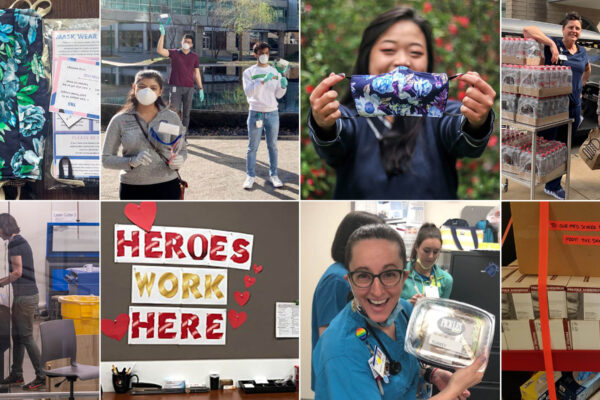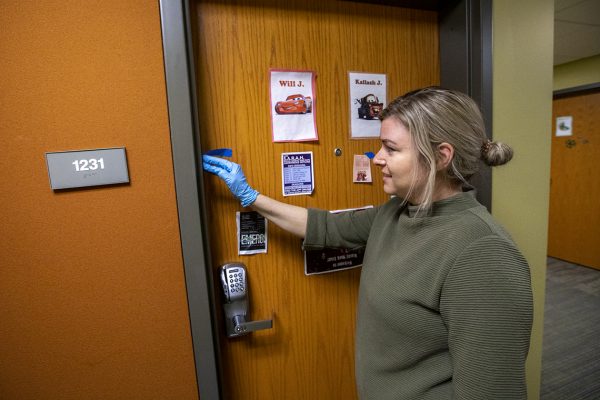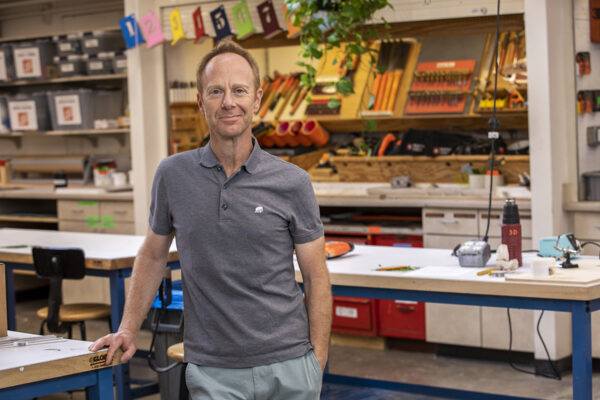
The mission of Burning Kumquat, a student-run organic garden at Washington University in St. Louis, is “sharing the joy of freshly picked vegetables with the world.”
While the “world” — with the closure of campus due to the COVID-19 pandemic — has gotten smaller, the mission has not, thanks to faculty fellows and their families. When students weren’t able to return to campus in mid-March, those families, who live on the South 40, stepped up and dug in to the 27-bed garden outside the Alumni House.
They harvested horseradish, garlic and greens like kale and Swiss chard, which the Burning Kumquat student members had planted last fall. In recent months, they also planted new crops, such as bok choy, broccoli, carrots, kohlrabi, peas, rutabaga and herbs.
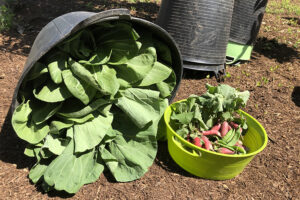
Faculty fellow Trevor Sangrey reached out to Burning Kumquat with an offer to help just days after students learned they wouldn’t return to campus after spring break.
As Sangrey, a senior lecturer in women, gender and sexuality studies and an assistant dean in Arts & Sciences, wrote in an email to the group, “Digging in the dirt sounds like a very good thing to be doing in these tumultuous times.”
Burning Kumquat student organizers, along with the university’s Office of Sustainability, are grateful for the support Sangrey and others have provided.
“We definitely couldn’t have continued as a club without their help,” said Maya Tsingos, a rising sophomore majoring in biology in Arts & Sciences. “The majority of our harvest happens in the fall. If they weren’t able to plant in the spring and summer, we would literally have nothing to harvest.”
Tsingos noted that the club’s weekly farmers’ market, sustainability and green gardening programming and big social event happen in the fall, all centered around the garden. “If we had an empty garden, we would be a really sad club in the fall.
“We’re so incredibly grateful for all of their efforts and really happy that they are able to continue what we can’t. And we hope that they are able to enjoy a little bit of the garden that we love.”
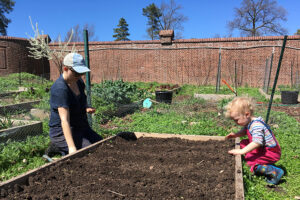
Sangrey, who remains in weekly contact with the members, said working in the garden is a wonderful diversion. The effort is a family affair with partner, Anika Walke, and the couple’s 3 1/2-year-old son, Delaney. Walke, also a faculty fellow, is associate professor of history; of international and area studies; and of women, gender and sexuality studies.
“It’s been good to be outside, in the dirt and to teach Delaney about seeds and where our food comes from,” Sangrey said. “It’s also been a really good diversion from what we otherwise would be doing — a lot of fort building!”
In addition to the faculty fellow families enjoying the fruits of their labor, Sangrey said they have taken about 25 heads of lettuce and 10 bunches of greens to the Metro Trans Umbrella Group, which is running a food pantry.
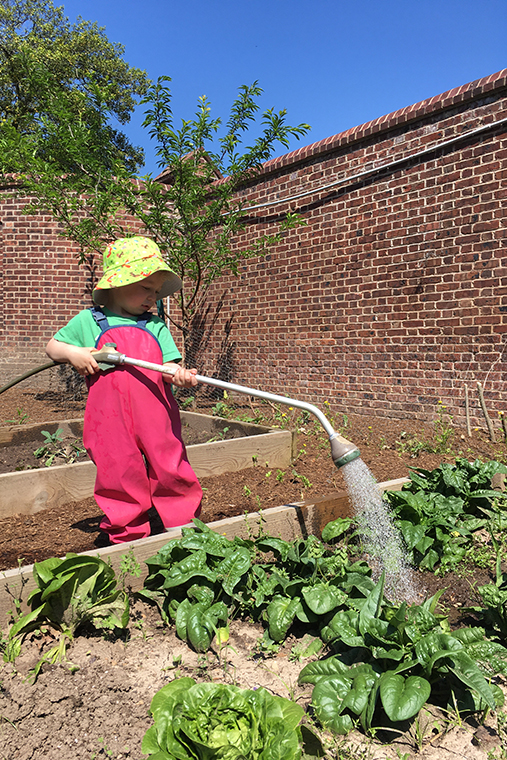
And Sangrey said they also are processing some of the harvest, like making garlic scape pesto, and freezing chard, collards, kale and peas to share with the Burning Kumquat students when they return in September.
“We’re happy to facilitate the students’ vision so that when they come back in the fall, they will be really excited and they can run with it,” Sangrey said.
“We’re just being stewards for the time being so that the garden can keep going.”
“They are so proactive about everything they do,” said Burning Kumquat member Sindy Ivaturi, a rising sophomore majoring in biology and music in Arts & Sciences. “It’s so hard for us to organize things from afar. It’s been great that they’ve figured out what crops would grow best in different parts of the garden.”
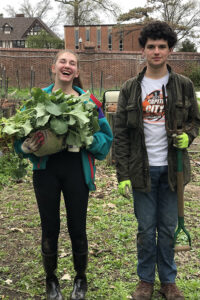
Leslie Zacks, wife of faculty fellow Jeffrey Zacks, professor of psychological and brain sciences in Arts & Sciences, said that before March, she had never gardened. Since then, you can daily find her in Burning Kumquat pulling weeds, planting, putting up trellises for beans, watering and even growing seeds on her kitchen windowsill.
She, like other faculty families, has even gotten her teenage children involved in the garden, jokingly adding that it gives them “something to do other than torture each other — and us.
“Tending to the garden has given us a great outlet — something that feels productive and positive,” Zacks said. “It will be really great to welcome the students back in a few months with a thriving garden!”
WashU Response to COVID-19
Visit coronavirus.wustl.edu for the latest information about WashU updates and policies. See all stories related to COVID-19.
